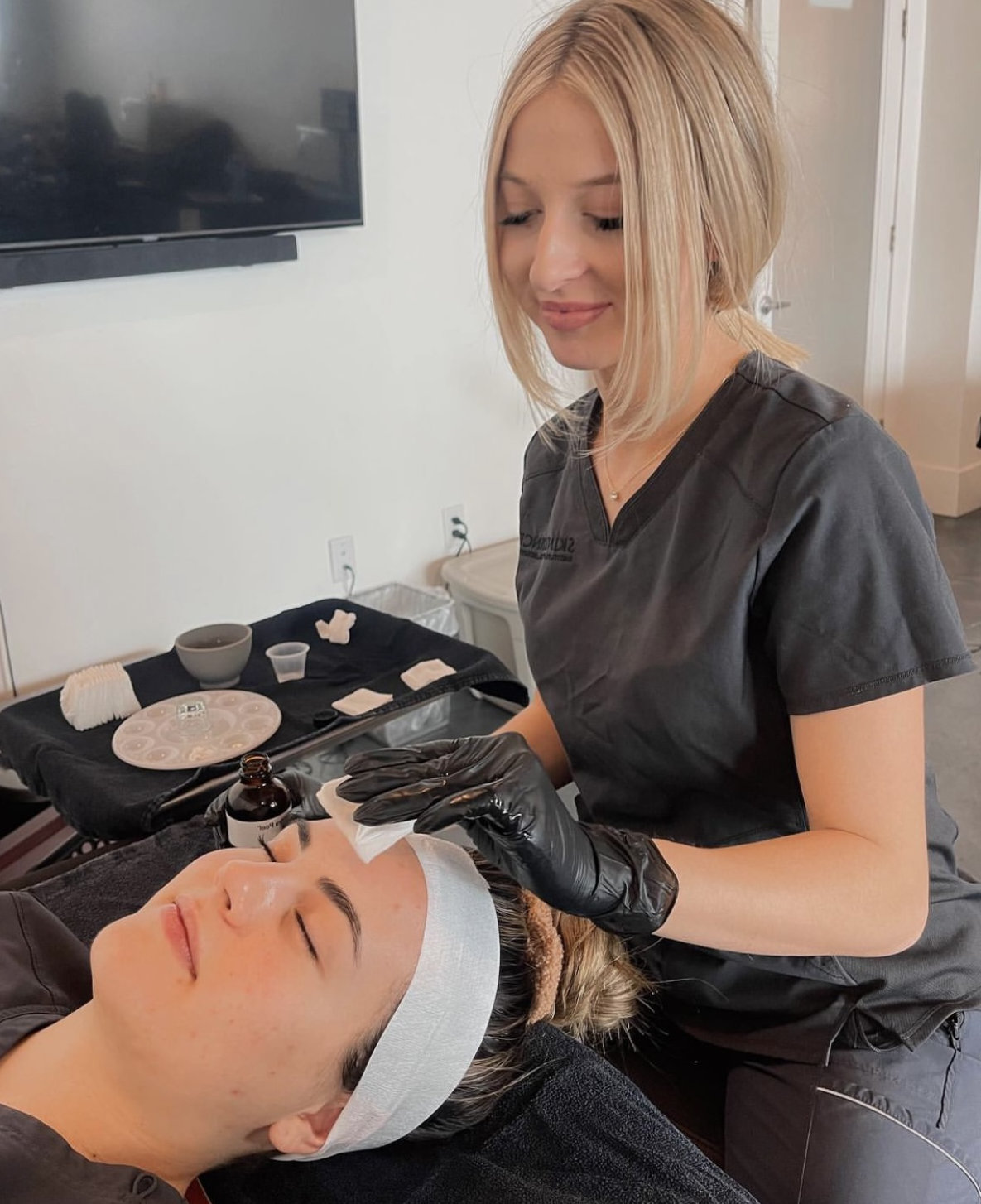So, you want to pursue a career in the beauty industry? Yay! It is a rewarding and exciting career path, full of opportunities and growth. In fact, research has shown that the beauty industry generates over $100 billion in revenue each year, highlighting the ever-growing need for skilled professionals who can keep up with demand.
It can be difficult, however, to decide which path to pursue. Both an esthetician school and a cosmetology school can provide career-changing opportunities, and choosing between the two can be a bit overwhelming.
Both paths offer unique specializations, so it’s important to understand the differences to make the best choice for your future. Let’s dive into what sets these two types of schools apart and how to pick the right one for you.
What’s an Esthetician School?
Focus and Curriculum
Esthetician schools are all about skincare, so if you’re passionate about helping people achieve their best skin, this might be your path. With individuals worldwide putting greater priority on their skincare, the need for estheticians is predicted to grow by 9 percent by 2032, much faster than the average growth. Here’s what you can expect to learn at an esthetician school like Skin Science Institute:
- Facial Treatments: From basic facials to advanced techniques like microdermabrasion and chemical peels
- Hair Removal: Waxing, threading, and laser hair removal
- Makeup Application: Both everyday looks and special-occasion makeup
- Body Treatments: Body wraps, scrubs, and other spa treatments
- Skin Analysis: Understanding different skin types and conditions to provide personalized care
Career Opportunities
With an esthetician training program, there are many potential career routes! Here are a few potential paths:
- Licensed Esthetician: Provides skincare treatments—such as facials, exfoliations, and masks—in spas, salons, or clinics
- Medical Esthetician: Works in medical settings, assisting with treatments like chemical peels, laser therapy, and advanced skin procedures under a dermatologist’s supervision
- Spa Esthetician: Offers a range of skin and body treatments in a spa environment, focusing on relaxation and wellness
- Waxing Specialist: Performs body waxing, facial waxing, and bikini waxing
- Makeup Artist: Applies makeup for various occasions, including weddings, photo shoots, and theatrical performances
- Laser Technician: Operates laser equipment for hair removal, skin resurfacing, and other cosmetic procedures, usually in medical or spa settings
- Esthetics Instructor: Teaches esthetics courses at beauty schools
- Skin Care Consultant: Provides personalized skincare advice and product recommendations, often in retail or spa environments
- Clinical Esthetician: Works alongside dermatologists or plastic surgeons, providing pre- and post-operative skincare and treatments
- Salon/Spa Owner: Runs their own beauty business, offering a range of esthetic services, managing operations, and handling other administrative tasks
Licensing and Requirements
Esthetician programs at Skin Science Institute require around 600 hours for basic esthetician training, 600 hours for intermediate master esthetician training, and 1,200 hours of training to become a comprehensive master esthetician. After completing your coursework, you’ll need to pass a state board exam to get your license.
What’s a Cosmetology School?
Focus and Curriculum
Cosmetology schools focus mainly on hair, covering topics like haircutting, coloring, and styling. Additionally, it covers topics like manicures and pedicures, basic facial treatments, and makeup techniques. If you are up to the challenge and passionate about hair or nail care, this might be the career path for you.
Here are some of the topics you will study:
- Hairstyling: Trimming, cutting, and styling different types of hair for various desired looks
- Coloring: Coloring, highlighting, frosting, bleaching, etc.
- Styling: Style techniques and extension installation
- Nails: Manicures and pedicures
- Makeup Artistry: Basic makeup techniques and applications
Career Opportunities
With a cosmetology license, you can pursue careers like the following:
- Hairstylist: Cuts, colors, and styles hair in salons or spas
- Barber: Specializes in cutting, styling, and grooming men’s hair
- Nail Technician: Provides manicures, pedicures, and nail art services
- Makeup Artist: Applies makeup for events, photoshoots, or theatrical productions
- Salon Manager: Oversees daily operations of a salon, including staff and client relations
- Cosmetology Instructor: Teaches beauty courses at cosmetology schools
- Beauty Consultant: Advises clients on the best hair products and services
- Product Sales Representative: Sells beauty products to salons, spas, and retail stores
- Salon Owner: Runs their own beauty business, managing all aspects of the operation
- Bridal Stylist: Specializes in hair and makeup for weddings
- Film or TV Hairstylist/Makeup Artist: Works on sets, providing hair and makeup for actors and performers
Licensing and Requirements
Cosmetology programs can vary but typically require about 1,600 to 2,400 hours of training. After finishing your program, you’ll take a state board exam to get licensed.
How to Choose the Right School for You
Consider Your Interests
What excites you most about the beauty industry? If you love skincare and helping clients achieve their best skin, esthetician school will be perfect. If you’re interested in hair and nails, cosmetology school could be the better fit.
Evaluate Your Career Goals
Think about where you see yourself in the future. Do you want to work in a spa providing skincare treatments or in a salon styling hair and doing nails? Your career goals can guide your choice.
Research Schools
Look for the best esthetician schools or cosmetology schools in your area. You can even utilize websites like MatchCollege.com to ensure that you are finding a school that best fits your needs. Here’s what to consider:
- Accreditation and Licensing: Is the school accredited and compliant with state requirements?
- Curriculum: Do the courses align with your interests and goals?
- Facilities: What is the quality of the equipment and learning environment?
- Job Placement Rates: How successful is the school in helping graduates find jobs?
Speak with Professionals
Talk to estheticians and cosmetologists about their experiences. They can offer valuable insights and advice to help you decide which path to take. Additionally, these professionals can offer motivation and inspiration to help you conquer the challenges of a fast-paced career.
Financial Considerations
Consider the cost of each program and explore financial aid options. While esthetician programs might be shorter and less expensive, cosmetology programs offer a broader range of training that could open up more career opportunities. It can also be valuable to consider what salary range you should expect following your graduation. Consider visiting these links to begin your research: esthetician average salary vs. cosmetology average salary.
So, What Will It Be?
Choosing between esthetician school and cosmetology school is a big step in your beauty career journey. Both paths offer unique opportunities and can lead to fulfilling careers. By understanding the differences and reflecting on your personal interests and goals, you can make an informed decision that sets you on the path to success.
At Skin Science Institute, we’re dedicated to providing exceptional esthetician training programs that prepare you for a rewarding career in skincare. If you decide that esthetician school is right for you, we’re here to support you and turn your passions into a career. If you have any questions or need guidance, feel free to reach out!




